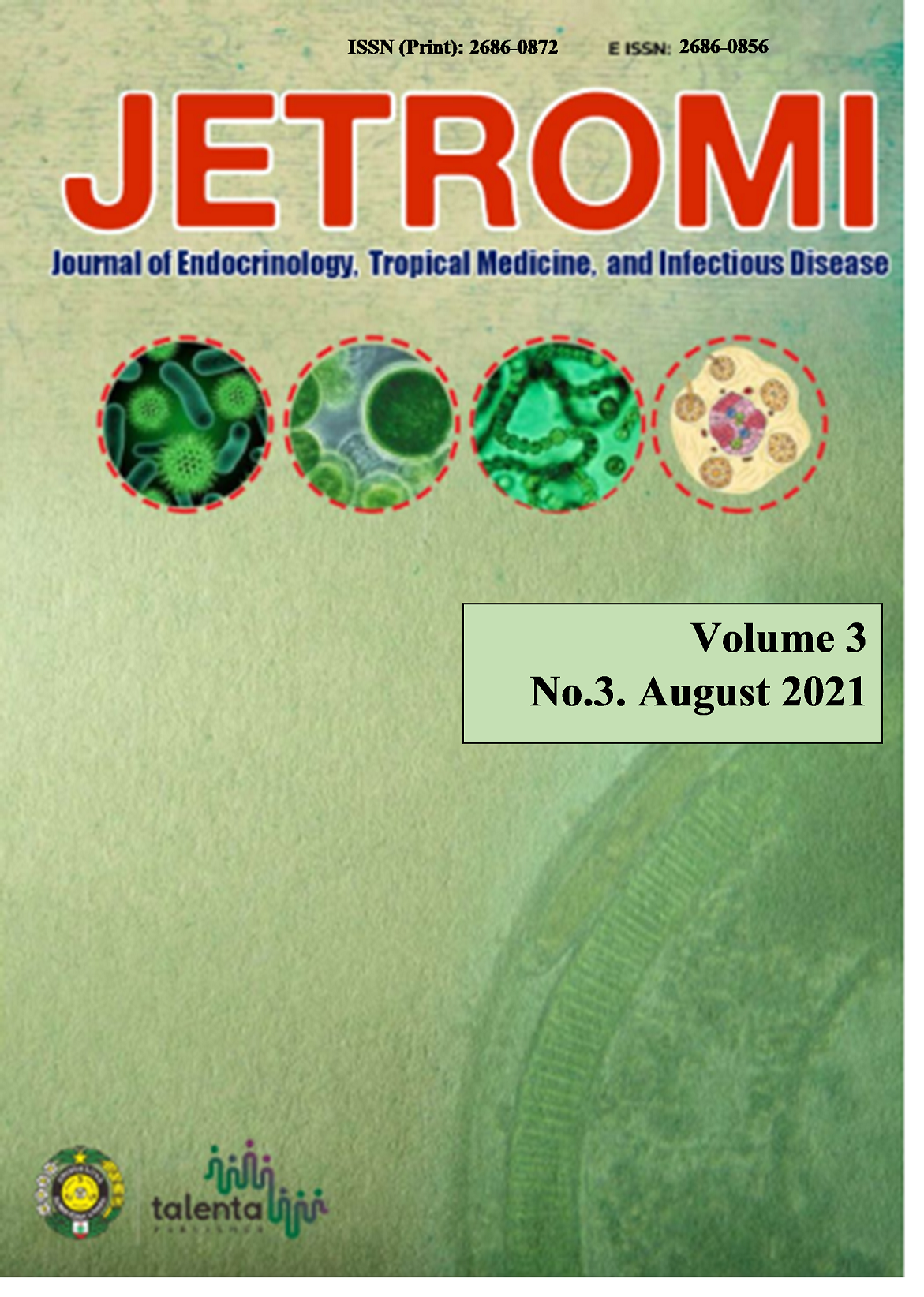The Correlation between Personal Hygiene and Intestinal Parasitic Infection in Students of SDN 060889, SDN 060894, and SDN 060831 Medan
DOI:
https://doi.org/10.32734/jetromi.v3i3.3550Keywords:
Intestinal Parasites, Intestinal Protozoa, Personal Hygiene, Primary School, Soil Transmitted HelminthsAbstract
Background. Intestinal parasitic infections are globally endemic diseases. The presence of parasites in the intestine will lead to growth disturbance. Knowledge of personal hygiene is necessary for responding to an illness or other health problems. This study was conducted to determine the correlation between personal hygiene and intestinal parasitic infections in students.
Method. This study is an observational analytic study with a cross-sectional design. Samples of this study were taken from students in grades IV, V, VI of SDN 060889, SDN 060894, and SDN 060831 Medan who met the inclusion and exclusion criteria, as many as 62 people. The research data are primarily collected in the form of questionnaires, and fecal specimens examined microscopically using the Kato-Katz and Ether Formol Concentration method. The data that has been collected will be analyzed using bivariate analysis with the chi-square test.
Results. From 62 respondents, it was found that 26 (41.93%) respondents suffer from intestinal parasitic infections. There were 16 (25.80%) respondents who had poor personal hygiene, while 46 (74.19%) others had good personal hygiene. A significant correlation was found between personal hygiene and intestinal parasitic infections in study respondents (p = 0.001).
Conclusions. There is a significant correlation between personal hygiene and intestinal parasitic infections in this study
Downloads
Downloads
Published
Issue
Section
License
Copyright (c) 2021 Journal of Endocrinology, Tropical Medicine, and Infectious Disease (JETROMI)

This work is licensed under a Creative Commons Attribution-NonCommercial-ShareAlike 4.0 International License.
The Authors submitting a manuscript do so on the understanding that if accepted for publication, copyright of the article shall be assigned to Journal of Endocrinology, Tropical Medicine and Infectious Diseases (JETROMI).
Copyright encompasses exclusive rights to reproduce and deliver the article in all form and media. The reproduction of any part of this journal, its storage in databases and its transmission by any form or media, will be allowed only with a written permission from Journal of Endocrinology, Tropical Medicine and Infectious Diseases (JETROMI).








